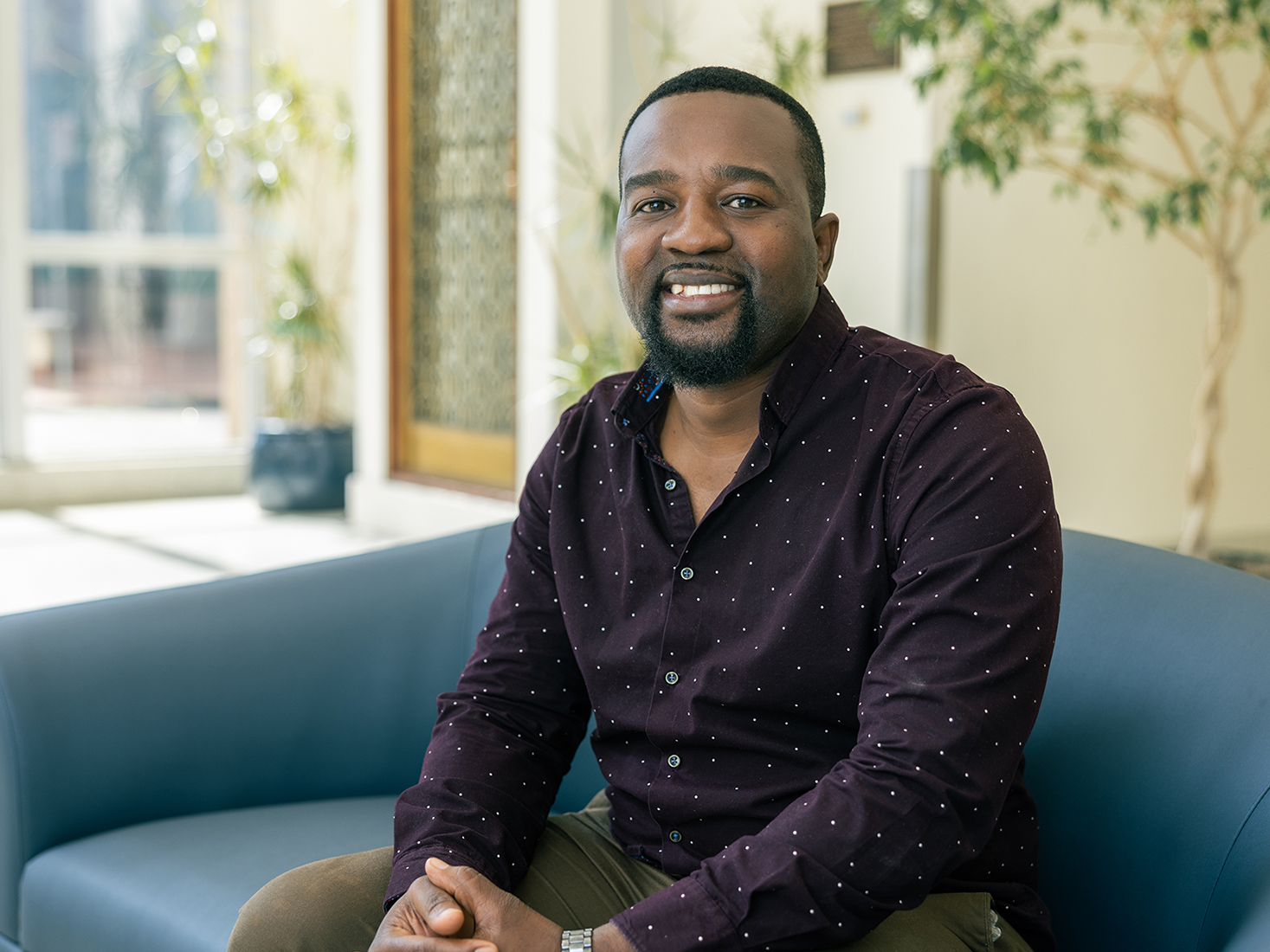Fulbright Scholar makes difference through pneumonia research
When Fulbright Scholar Ferris Munyonho was looking for a university to attend in the United States, Tulane was always his first choice.
“It’s bold, innovative and deeply committed to impact,” said Munyonho, who is graduating with his PhD from the Biomedical Sciences program at the Tulane School of Medicine. “From world-class research to a culture that values different voices, Tulane stood out as the place where I could grow, lead and truly make a difference.”
Making a difference is what has driven Munyonho since his undergraduate days studying biochemistry in his native Zimbabwe.
Before coming to Tulane, he was an undergraduate researcher studying biochemistry in the lab of Professor Takafira Mduluza at the University of Zimbabwe and received a master’s degree in chemical engineering and technique from Zhejiang University of Science and Technology in China. In 2021, he received a Fulbright Scholarship to pursue his PhD.
Munyonho originally intended to study cancer, but he ended up being drawn to the work of Dr. Jay Kolls, John W. Deming Endowed Chair in Internal Medicine who is also director of the Center for Translational Research in Infection and Inflammation at the School of Medicine. Munyonho was able to get support not only from the center but also through the Louisiana Board of Regents Endowed Chairs for Eminent Scholars program. Under Kolls, Munyonho began doing research on Pneumocystis pneumonia, a serious lung fungal infection that affects individuals with weak immune systems. In 2022, it was listed as a top fungal priority pathogen by the World Health Organization.
Through his research, Munyonho developed a physiologically relevant precision-cut lung slices (PCLS) model that allows long term survival of the fungus that causes Pneumocystis pneumonia outside of the body, a longstanding challenge in research on the disease. The PCLS model now enables more accessible drug screening and studies of the disease itself in a cheaper, less resource-intensive way than current methods. This model is particularly valuable in resource-limited settings such as Munyonho’s home country, where it supports local drug screening, reduces infrastructure demands and promotes capacity building in respiratory and infectious disease research.
“Whenever I’m planning on something, I’m thinking in terms of where I come from,” Munyonho said. He considers how techniques he uses and the research he does would work in resource limited areas without easy access to labs or for scientists who don’t have as much funding.
Munyonho hopes to put the skills he has gained as a PhD student to good use, to lead cutting edge research, train the next generation of scientists and build bridges between science and policy to drive real-world change. He wants to give the bright young scientists back home the opportunity to do the investigations that are vitally needed. “I want to be a game-changer in global health and a voice for innovation where it’s needed most!”
Munyonho pointed out how important the resources and time available to him as a student at Tulane were to his ability to reach his full potential.
“Being from Africa doesn’t mean you lack the scientific understanding that others have here,” said Munyonho. “Often, it’s simply a matter of limited exposure or access to resources.”
The environment at Tulane, however, has allowed him to thrive.
“It’s an honor to be in an environment where your work is valued and where you're given the opportunity to tackle challenging problems in an intellectually stimulating academic setting,” he said.


